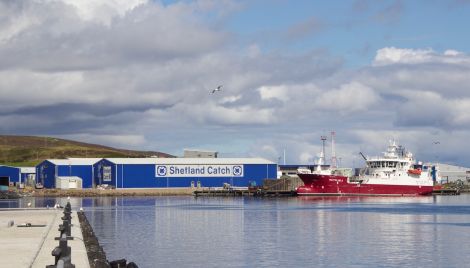News / Seafood industry’s heavy reliance on EU workers
NEW research has revealed that over half of staff working at seafood processing businesses in Scotland are from outside the UK.
Marine Scotland surveyed 18 Scottish companies and it found that 58 per cent of employees were from the non-UK European Economic Area – notably higher than Seafish Industry Authority’s UK national average of 42 per cent.
Rural economy secretary Fergus Ewing said the latest study “raises concerns from processors that Brexit could threaten their businesses’ survival”.
The study also revealed that nearly 90 per cent of all employees in the processing sector worked on permanent contracts, with the majority from non-UK EEA countries such as Poland, Lithuania and Latvia.
The report surveyed businesses in Shetland, Orkney, the Western Isles, the Highlands, Aberdeenshire and Fife.
Shetland Aquaculture general manager Davie Sandison said it was imperative that seafood businesses were able to export their produce “without any additional hassle”.
“Simply we want what everybody is now referring to as a frictionless border,” he said. “In other words, we do not need to see any delays whatsoever in terms of a paperwork trail etc., in terms of custom conditions to get in and out of different countries.”
There are mixed views locally on what impact the UK leaving the European Union may have on the industry, with Grieg Seafood Hjaltland’s managing director Grant Cumming telling Shetland News last year that “it may be much more difficult in the future recruiting”.
Norway-based Pelagia Shetland chief executive Egil Magne Haugstad, however, said Brexit was a “huge opportunity” for the fishing industry and “all challenges connected to production and market can and will be solved after that”.
The Marine Scotland study added that “all seafood sectors reported high dependency on low-skilled non-UK EEA workers.
“All pelagic businesses in the sample reported high dependency. 75 per cent of shellfish processors, 67 per cent of salmon processors and 50 per cent of mixed processors in the sample reported high dependency.
Become a member of Shetland News
“Most low-skilled non-UK employees worked as factory operatives, filleters and drivers.”
Ewing added that the study “backs up recent analysis which found EU nationals contribute more than £4.4 billion a year to our economy and shows exactly why we value the contribution they make in our communities.
“We will continue to show EU nationals that they are welcome here and call for free movement of people which is clearly in the best interests of Scotland and the UK as a whole.”
Become a member of Shetland News
Shetland News is asking its readers to consider paying for membership to get additional perks:
- Removal of third-party ads;
- Bookmark posts to read later;
- Exclusive curated weekly newsletter;
- Hide membership messages;
- Comments open for discussion.
If you appreciate what we do and feel strongly about impartial local journalism, then please become a member of Shetland News by either making a single payment, or setting up a monthly, quarterly or yearly subscription.




























































